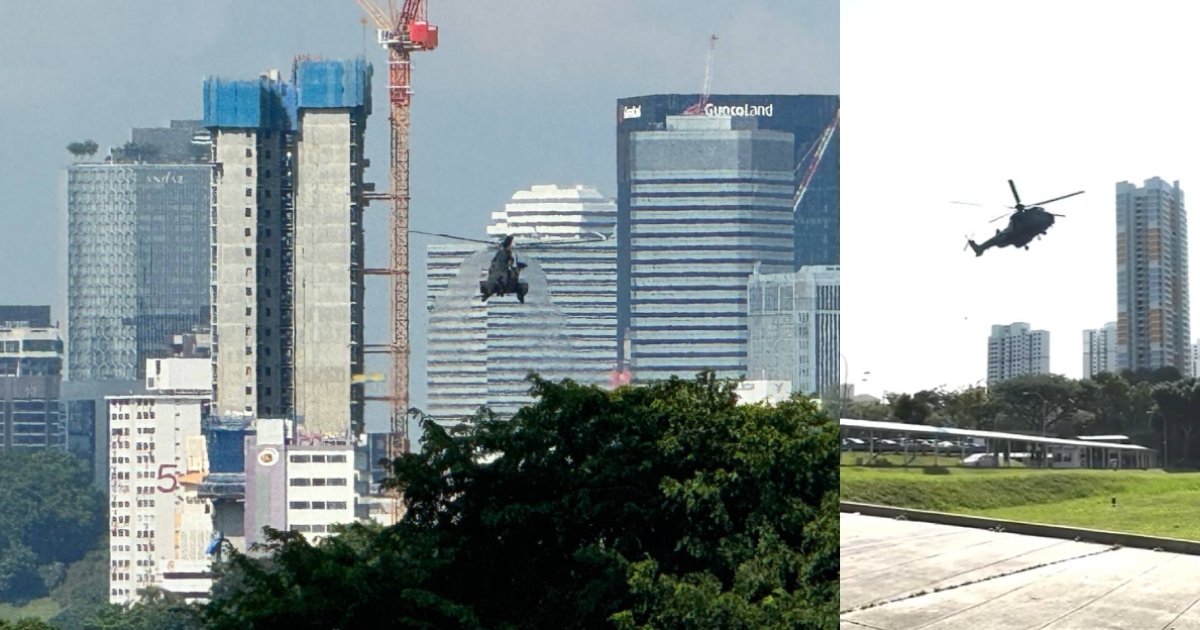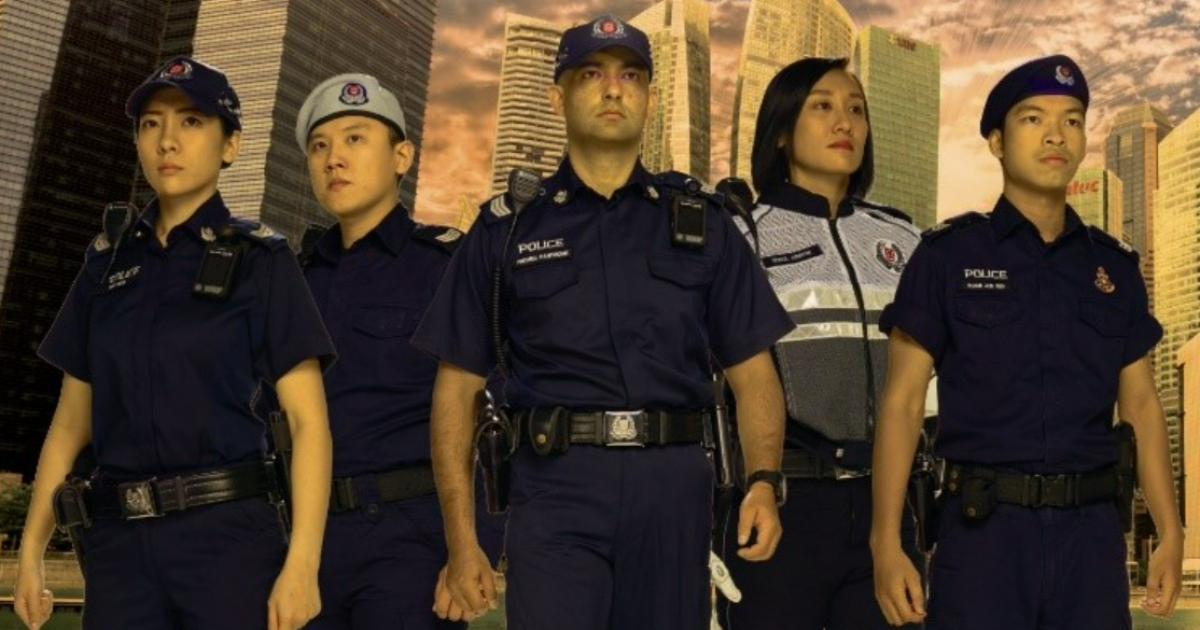This S’porean, 45, has been an auxiliary police officer for over half his life. Here’s what keeps him going.
They’re real police officers, BTW.

There are some obvious perks to being an auxiliary police officer (APO) at SATS Security Services.
There’s the cool uniform, for one.
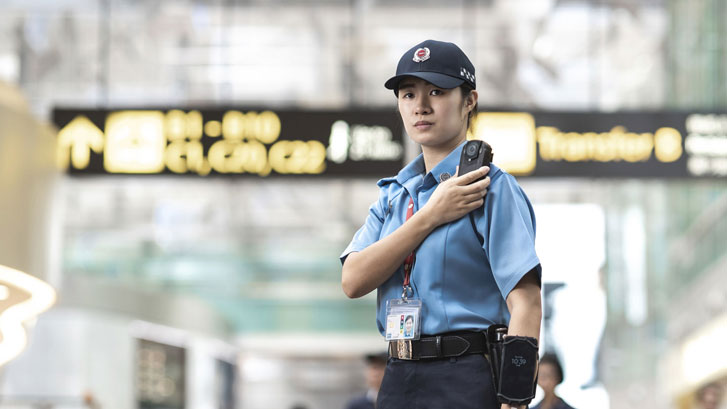 Photo from SATS
Photo from SATS
The fact that you get to work at Changi Airport, aka Singapore’s hottest tourist attraction.
 Photo from Changi Airport/Facebook
Photo from Changi Airport/Facebook
And of course, there’s the S$40,000 sign-on bonus.
Y’know, just in case you were interested.
But for Noor Halim, who’s been at SATS for over 24 years, it’s more than just the perks that keeps him going.
The 45-year-old, who admits that he “gets bored easily”, opens up about how he’s managed to stay at his first job for over half his life.
What’s an APO, anyway?
But first — what even is an APO?
“There’s a misconception that APOs are not real police officers. Actually, we are vested with the same powers as the Singapore Police Force (SPF) when we are performing our duties...so we are actually real police,” Halim explained.
It’s another misconception that APOs are equivalent to security guards.
But unlike security guards, APOs may also carry firearms as part of their duties — another thing that they have in common with police officers. As Halim said:
“Carrying firearms, of course, comes with a high responsibility. So we have to have deep knowledge about the law, and the rules and regulations in deploying firearms.”
In short, APOs support and assist full-time Police Officers in maintaining law and order in Singapore.
At SATS Security Services, in particular, their job is to provide security services to airlines.
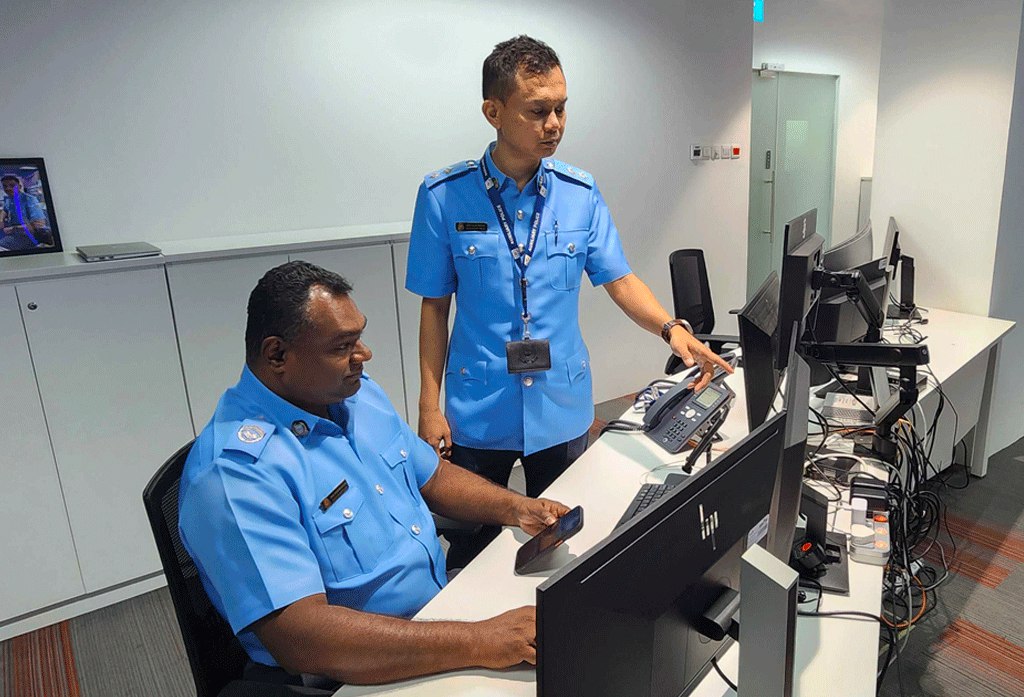 Halim (right) with a colleague. Photo from SATS
Halim (right) with a colleague. Photo from SATS
A day’s work
As a watch officer, part of his job involves dealing with people who fail to get through customs, for one reason or another.
He recalls one case a few years ago: “This guy was in his mid-40s. Strongly-built, fierce-looking…so I felt a little bit intimidated.”
Despite his initial apprehension, he sat with the man to find out more about him.
That’s when he learnt that the man was being deported, and felt distraught on the way to his flight.
“We had to ensure that he’s calmed down, he doesn’t create public disturbance during the escort. So we had some personal chats. I asked him about his background, his reluctance to be deported…and took the time to understand his situation better.”
Halim also assured him that Singapore was safe, and that he would be treated with utmost care under the police’s custody or during the flight.
“In some countries, the environment is quite different from Singapore. They might be scared of being jailed, even tortured…so we have to eliminate their fears.”
Over the course of his work, he’s learnt how to better engage with such people, picking up communication skills and learning to empathise with them.
In that particular case, he recalls that the man had been “amazed” that a police officer would take the time to sit down with him and understand his situation.
And that’s part of what keeps every day interesting, despite admitting that he’s the type to “get bored easily”.
“For me, working in the airport is interesting as we are able to meet different people every day, from different countries, races, and cultures,” he said.
“And motivation is also crucial. I find new things, or interesting things along the way to keep myself energetic..and these spur me or spark me to do more.”
Work-life balance
But being an APO at one of the world’s busiest airports also means the work never ends; i.e., it comes in shifts.
“We don’t have the regular weekend opportunities [to spend with our] families, but we substitute it during our off days,” he explained.
Halim added that APOs are given off and rest days every week to ensure work-life balance despite not having fixed working hours.
An avid footballer, Halim maintains a pretty active social life even with his shift work.
He catches up with his friends at least once a week over futsal, and occasionally meets them for lunch or dinner.
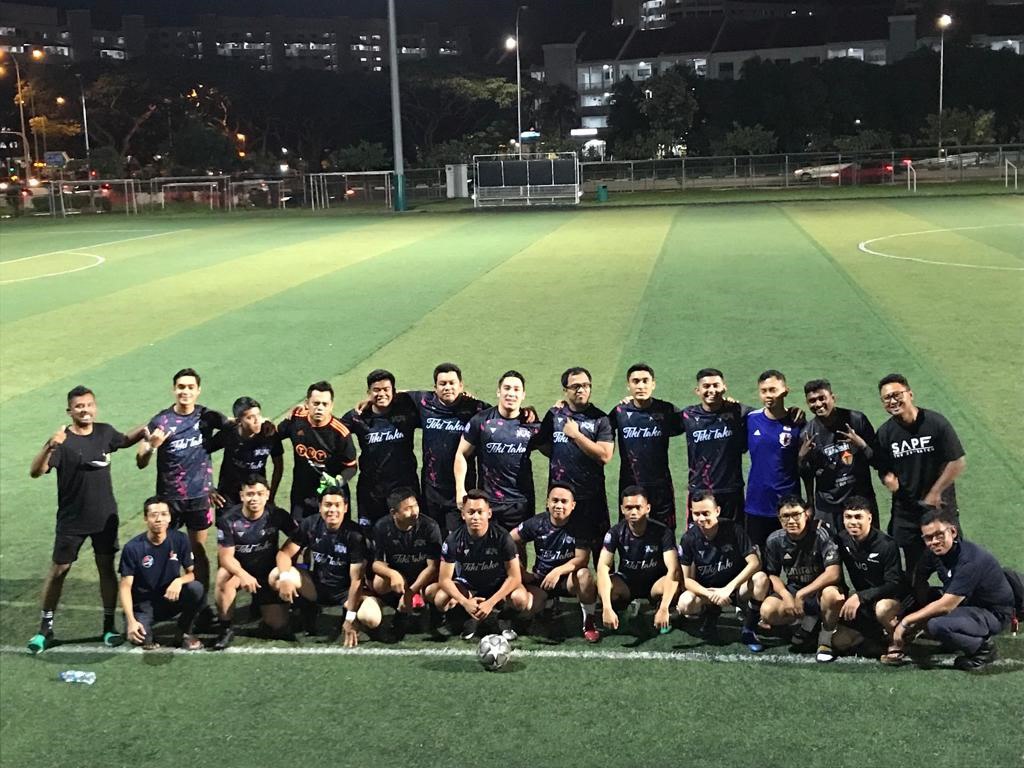 Photo from Halim
Photo from Halim
On top of his IPPT training, Halim also picked up marathon-running at the age of 30, on a doctor’s advice after injuring his ankle during football.
15 years later, he regularly runs marathons in Singapore — the Standard Chartered one is the next on his schedule — but hopes to run an overseas marathon soon.
“One of [my football friends] actually spurred me to consider the Gold Coast marathon next year,” he shared.
“So that would be my first foray into overseas running.”
 Crossing the finish line. Photo from Halim
Crossing the finish line. Photo from Halim
Because his work “requires a lot of concentration”, keeping to his various commitments requires a bit of a balancing act. To that end, he’s careful to get enough sleep and to eat well.
But it’s all worth it to him. “Because to me, my work is important,” he explains.
“[I became an APO] because I aspired to be a useful member of society. And what better way to do that than serve in a police uniform, keeping my counter safe and secure? It allows me to make a positive difference in people’s lives...[and] gives me an indescribable satisfaction at the end of the day."
Money, money, money
At the end of the day, however, work is about one thing in particular; and that’s bringing home the bread.
S$40,000 sign-on bonus aside — if you can even put something like that aside — Halim acknowledges that being an APO is “an iron rice bowl”.
“To be frank, in Singapore, we have to work until around 60, 65. But to find a stable career here is not easy,” he said.
“There are lots of opportunities out there. But to work in a single company from a young age, all the way to 60, 65…it’s not easy. Because we see people changing jobs every few years, companies also can fire people after a few years.”
In contrast, being an APO is relatively stable. Sure, it’s not risk-free — Halim openly admits that dealing with aggressive passengers is just part of the job — but it’s something he can imagine doing even in his 60s.
Halim credits his supportive peers, supervisors and trainers at work as motivators and sees himself doing the same to coach the newer generation.
It’s also something that is unlikely to be replaced by AI or robots. “Even though AI can take over some of our roles — like checking of passes, or simple procedures and detections — when it comes to exceptions and security-related interception, it generally requires a person’s presence,” he explained.
“And while a robot can be automated to react in certain cases, I doubt it can take over a human brain’s capacity in handling incidents.”
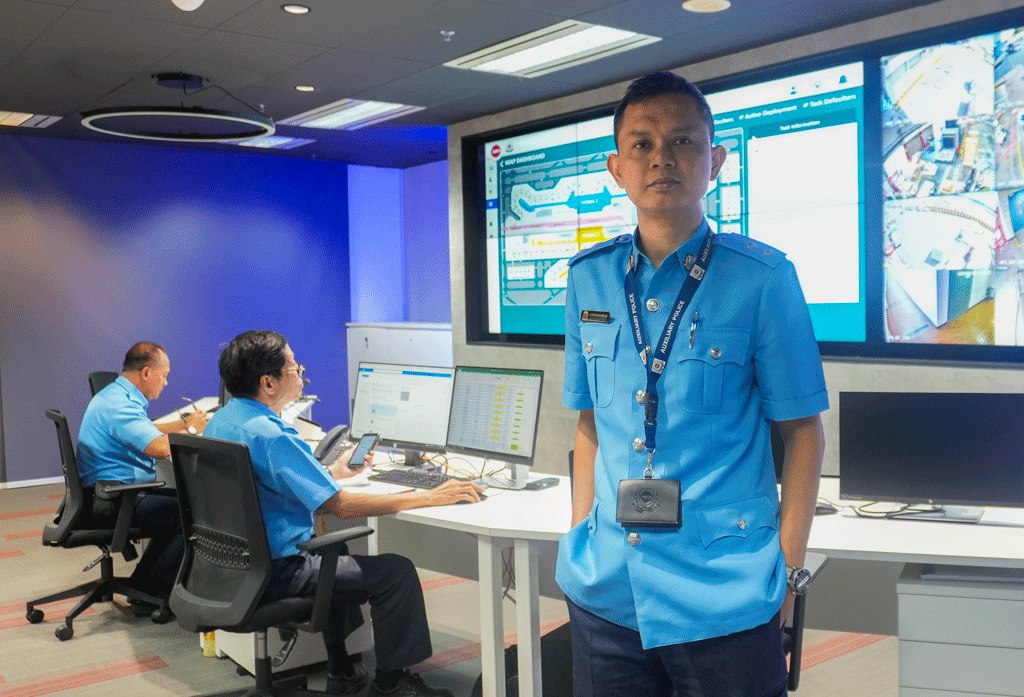 Photo from SATS
Photo from SATS
Becoming an APO
Interested in joining SATS as an APO?
Apart from the S$40,000 sign-on bonus, salaries* start at S$4,000 for Inspector-rank joiners (degree level), and S$3,300 for sergeant-rank joiners (diploma level).
You’ll need proficiency in English, a minimum of three N-Level credits, and a pass in your IPPT (for men).
Indicate your interest here, or drop by SATS’s upcoming coffee chat session to speak to the various teams and officers in person.
Date: Aug. 2, 2024
Time: 10am to 4pm
Address: Starbucks Jewel Changi Airport, Function Room
78 Airport Blvd, #02-204, Singapore 819666
*Salaries are not inclusive of allowances, and overtime pay.
Writing this SATS-sponsored article made this writer realise it’s really, really hard to ignore a S$40,000 sign-on bonus. That’s like 10,000 plates of chicken rice.
Top photos courtesy of Noor Halim and Changi Airport/Facebook
MORE STORIES















